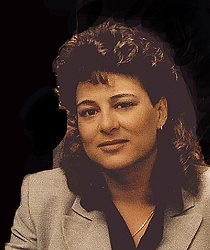Hughes-Cione APLC
Principal, Hughes Cione, APLC
Santa Ana, California
Huges-Cione APLS provided legal advocacy to employees who found themselves trapped in workplace environments wrought with discriminatory, harassive and retaliatory conduct. Hughes-Cione APLC handled wrongful termination and whistle blowing cases as well as wage and hour issues. The firm also handled cases that involved both, private and public employees.
Hughes-Cione APLC handled civil rights issues exclusively arising in the employment context for both public and private employees. Although the majority of the work involved litigation, Hughes-Cione APLC also offered a variety of other services such as Mediation and Conciliation Services, Pre-Law Suit Negotiation and Consultation, Post Litigation Appeals and, probably most importantly, Employer Educational Services.
K.D. Hughes was licensed to practice in all California State and Federal District Courts as well as in the 9th Circuit Court of Appeal. KD Hughes was also licensed to take cases before the US District Court of Appeal and the United States Supreme Court. Finally, Ms. Hughes had a great deal of experience practicing before the Equal Employment Opportunity Commission, the United States Department of Labor and the Office of Federal Operations.
Prior to founding Hughes-Cione, a Professional Law Corporation in March of 2007, K.D. Hughes was a partner in the law firm of Spence, Hughes & Associates which was opened in March of 2002. Before starting her own law firm, Ms. Hughes was an associate with the law firm of Barnes, Crosby, FitzGerald & Zeman. She dedicated her practice to prevention, through education and adjudication, of civil rights issues arising in the context of an individual’s employment. Specifically, Ms. Hughes handles cases for both public and private employees in whistle blower actions, harassment, discrimination, retaliation and wrongful termination cases. She also handled a multitude of wage and hour violations and administrative hearings and appeals before the Office of Federal Operations, Merit Systems Protection Board, United States Department of Labor, Equal Employment Opportunity and Wage and Hour Commissions.
Prior to attending law school, K.D. Hughes was a thirteen year veteran of the United States Postal Service. After becoming disabled in an automobile accident in 1995, she found herself being subjected to discriminatory conduct in context of her employment. Because she was not able to find counsel to assist her in the adjudication of her rights, Ms. Hughes took her case against the United States Postal Service, in pro per, to the Equal Employment Opportunity Commission where she prevailed. She later successfully defended the postal service’s appeal to the Office of Federal Operations in Washington D.C.. Thus, a significant portion of her practice involved claims brought against various governmental agencies.
In 1997, K.D. Hughes graduated suma cum laude from Arizona State University with a Bachelors of the Arts degree in Intragrative Studies, and a Minor in Communication. She resigned from her employment with the postal service in 1997 and moved to California to attend Whittier College, School of Law. In 2000, Ms. Hughes graduated cum laude from Whittier, earning her Juris Doctorate degree.
Ms. Hughes had been a member of the State Bar of California, the United States District Court for the Central and Southern Districts of California, and the United States Court of Appeals for the Ninth Circuit since 2000. She was also admitted to practice before the United States District Court of Appeals in 2003 and the United States Supreme Court in 2005.
Ms. Hughes published several multi disciplinary articles on employment related issues which include: “Whose Job is it Anyway?” Whittier Law Review, April 2000; “Can Barbarians Be Autonomous?” Arizona Communications Journal, Abstract from “Going Postal” 1997; and “Workplace Ethics” ASU West Express, 1996. She was a recipient of fellowships from the American Board of Trial Advocates’ and the Whittier Public Interest Law Foundation. Ms. Hughes was also responsible for creating a curriculum for the Southern California and Arizona chapters of the American Civil Liberties Union and was instrumental in implementing the “Street Law” program at Whittier College of Law. The impetuous behind each of these programs were to empower underprivileged youth by educating them about their civil rights.
Ms. Hughes was designated as an expert witness in Federal Cases involving the United States Postal Service and lectured on various topics regarding the practice of employment law. She iserved on the University of California, Irvine’s panel of attorneys who provide services to its legal clinic and on Orange County’s panel of mediators who offer mediation services through the county’s Human Relations Commission.
Ms. Hughes passed away in Novemember of 2018.

